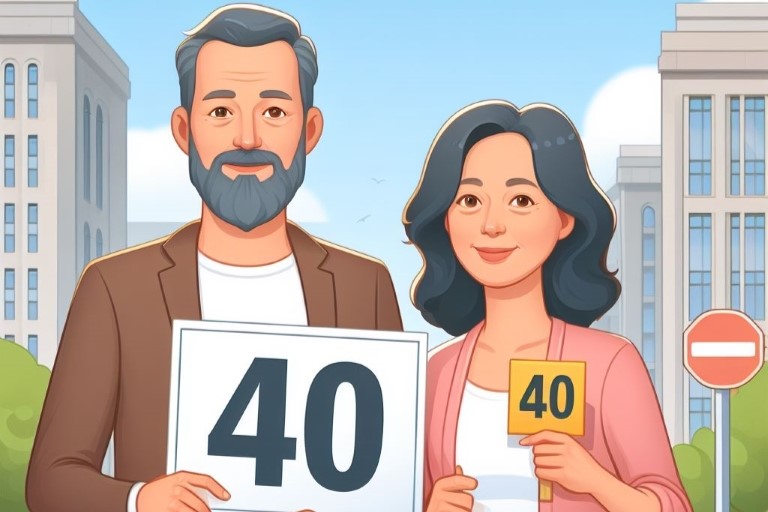Dating after a divorce can feel like going through a complex new world. For those in their 40s, the dating scene can seem especially daunting. Whether you’re re-entering the dating pool after many years or looking for love after a major life change, there’s hope and excitement ahead. Let’s explore empowering strategies to help you find love and companionship.
Understanding Your Desires

Rediscover Yourself First and foremost, take time to understand your own needs and desires. After a divorce, it’s essential to reflect on what you really want in a partner this time around. Grace suggests, “Use this period as an opportunity to rediscover your preferences, interests, and aspirations. Knowing yourself better will guide you in finding a compatible partner.”
Setting Realistic Expectations While it’s important to know what you want, setting realistic expectations is equally crucial. Understand that everyone has imperfections and focusing on finding someone who aligns with your core values is key.
The New Dating Life

Online Dating Platforms: The digital age has transformed the dating world. Exploring online dating sites and apps can be a great way to meet new people. With various platforms catering to different preferences and age groups, it’s easier to find someone with similar interests.
Networking and Social Events: Don’t underestimate the power of networking and attending social events. These can be excellent opportunities to meet potential partners in a more natural setting.
Communicating Openly and Honestly
Express Your Intentions Clear communication about your intentions, boundaries, and expectations is vital. Be honest about your past and what you’re looking for in a future relationship.
Prioritizing Safety and Comfort
Meet in Public Spaces When meeting someone new, always prioritize your safety. Opt for public spaces for initial dates, and let a friend or family member know about your plans.
Learning from Past Relationships
Reflect on Previous Lessons Use your past experiences as lessons for future relationships. Identifying patterns or mistakes can help you make better choices moving forward.
Staying Optimistic and Resilient
Maintain a Positive Outlook It’s essential to stay optimistic and keep an open mind. Love can often be found when least expected, so don’t lose hope if things don’t immediately go as planned.
Navigating Emotional Challenges
Seek Support When Needed If you’re struggling with the emotional aspects of dating after divorce, consider seeking support from friends, family, or a professional. Grace emphasizes, “It’s okay to seek help. Talking about your feelings can provide clarity and strength.”
Exploring Shared Interests and Hobbies

Finding Common Ground Engaging in activities that interest you can be a wonderful way to meet potential partners who share your passions. Whether it’s joining a hiking group, a book club, or a cooking class, shared interests provide a natural and relaxed environment to connect. Plus, it offers an immediate topic of conversation that can help ease any initial awkwardness.
Building a Connection Once you find someone with shared interests, focus on building a genuine connection. Take the time to get to know them beyond the surface level. Shared hobbies are a great start, but deep, meaningful conversations will strengthen your bond.
Handling Rejection Gracefully
It’s Part of the Process Rejection is an inevitable part of the dating process, especially in the digital age. It’s important to remember not to take it personally. Grace advises, “Rejection doesn’t reflect your worth. It simply means you weren’t compatible with that person.”
Moving Forward Positively Instead of dwelling on rejection, use it as a learning opportunity. Reflect on any feedback you may receive and consider how you can use it to improve future interactions. Always keep a positive mindset and remember that the right person for you is out there.
Balancing Dating with Life Responsibilities

Managing Your Time In your 40s, you’re likely juggling a variety of responsibilities, from career to family. It’s crucial to manage your time effectively to incorporate dating into your life without overwhelming yourself. Setting aside specific times for dating activities can help you maintain balance.
Integrating New Relationships When you do find someone special, think about how they will fit into your existing life. It’s important to ensure that your partner understands and respects your commitments, just as you should with theirs.
Overcoming the Fear of Getting Hurt Again

Acknowledging Your Fears It’s natural to feel apprehensive about opening up to someone new after a divorce. Acknowledging your fears is the first step towards overcoming them. Recognize that while past relationships ended, they have also taught you valuable lessons.
Embracing Vulnerability Allowing yourself to be vulnerable is essential for building a strong relationship. While it can be scary, it’s also the pathway to deep connection and intimacy. Remember, vulnerability is a strength, not a weakness.
As you venture into dating after divorce in your 40s, remember to be kind to yourself,” Grace shares. “Embrace the journey with an open heart and mind. Your experiences, both good and bad, have prepared you for this moment. Trust in yourself and the unique path you’re on. Love often arrives in the most unexpected ways and times. Stay positive, and don’t rush the process. Your next great love could be just around the corner.
Creating a Supportive Dating Environment

Lean on Your Support Network Having a strong support network can make all the difference in your dating journey. Lean on friends and family for encouragement and advice. They can offer a fresh perspective and remind you of your worth when you’re feeling down.
Consider Professional Help If you’re finding it particularly challenging to navigate the emotional aspects of dating after divorce, consider seeking the help of a therapist or a dating coach. They can provide strategies and support to help you move forward with confidence.
